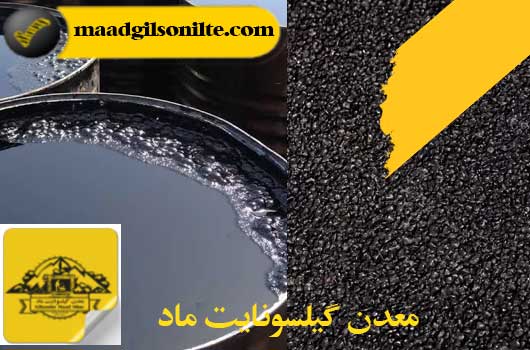
Bitumen is a viscous, black, semi-solid substance composed of complex hydrocarbons extracted from crude oil. Commonly known as asphalt, it is widely used for road construction, roofing, and waterproofing.
Bitumen consists of a complex mixture of hydrocarbons, the main components of which are asphaltenes, resins and oils. The composition can vary depending on the crude oil source, refining process and intended use.
Viscosity is a measure of a substance’s resistance to flow. Bitumen is very viscous, which means it has a high resistance to flow. The viscosity of bitumen can be adjusted by heating it, making it easier to work with.
density
Penetration is a measure of bitumen hardness. It is defined by the depth that a standard needle penetrates into the bitumen. Its hardness can be adjusted through a process called blowing.
The main application of bitumen is in road construction. This material is used as a binder in the production of asphalt concrete and is added to aggregates to create a durable and flexible road surface.

Natural bitumen, also known as asphalt rock and gilsonite, is found in natural sediments and is commonly used for road construction and waterproofing.
Petroleum bitumen is the most common type of bitumen. It is produced through the refining of crude oil and is widely used for roads, roofs and waterproofing.
Blown bitumen is produced through a process called blowing, which involves blowing air through heated Asphalt to increase its hardness and viscosity. It is primarily used for roofing.
Polymer-modified bitumen is produced by adding polymer additives to asphalt , which increases its elasticity, durability and resistance to temperature fluctuations. It is widely used for road construction and waterproofing.
Asphalt or bitumen has several advantages that make it a popular material for various purposes. First, it is a very durable material that can withstand extreme weather conditions, and it is also resistant to water and chemicals, making it ideal for construction projects such as roads, bridges, and roofs. Additionally, asphalt has excellent adhesion properties, allowing it to adhere to other materials such as aggregate, creating a strong bond.
Additionally, tar affordable material that is readily available in many areas around the world. It is also a recyclable material that reduces waste and increases sustainability.
Despite its benefits, bitumen has several disadvantages that should not be ignored. One of the main drawbacks of using it is its environmental effects. Its production and use can contribute to air and water pollution and its disposal is harmful to the environment. In addition, it is a flammable substance that poses safety hazards during storage and transportation.
Also, this substance requires a significant amount of energy to produce, which contributes to the emission of greenhouse gases and global warming. Additionally, exposure to tar fumes can cause respiratory problems and other health issues in workers who work with the material.
. environmental effects
Bitumen extraction from oil sands can have significant environmental impacts. This process requires large amounts of water and energy, which can lead to greenhouse gas emissions and water pollution. Mining can also disrupt natural habitats and wildlife.
Transporting asphalt can also have environmental impacts. Pipelines used to transport bitumen may leak and cause water and land pollution. Transportation by tanker truck or rail can also lead to accidents that can harm people and the environment.
asphalt disposal can also have environmental consequences. Bitumen is not easily biodegradable and can remain in the environment for a long time. Improper disposal can lead to soil and water pollution and damage to wildlife.
The industry is constantly evolving and new technologies are being developed to reduce its environmental impact. For example, some companies use solvents instead of water to extract tar from the oil sands, reducing water consumption and greenhouse gas emissions.
There are also sustainable alternatives to this material such as bio-bitumen made from renewable sources such as vegetable oil. Bio- has similar properties to the traditional type and can be used in many of the same applications, but with less environmental impact. Other alternatives include recycled asphalt pavement and asphalt made from recycled plastic.
As these alternatives become more widely available and affordable, they can help reduce the environmental impact of the asphalt industry. As a result, asphalt is an essential material that has revolutionized many industries and its importance will only increase in the future. However, its production and use are associated with environmental challenges that must be addressed.
But the industry is currently making strides toward sustainable alternatives to , and it is imperative that we embrace these changes to protect our environment.
Bitumen is a very widely used material with several advantages and disadvantages. While this material is affordable and durable, its production and use have significant environmental impacts and safety concerns that must be addressed. As the world moves towards sustainability and reduced greenhouse gas emissions, alternative materials for use in construction and other applications are being developed and explored.
As a result, it is a valuable and versatile material with a wide range of industrial applications. Despite some environmental and safety concerns associated with its production and use, ongoing research and development is being done to address these challenges. With industries continuing to evolve and innovate, it is likely to remain an essential component in construction, manufacturing, and other fields for years to come.
Bitumen is a very viscous, black or dark brown substance obtained from crude oil. Roofing and waterproofing materials are usually used in road construction.
Bitumen is used in various industries, including road construction, waterproofing, roofing, and adhesives and sealants. It is a popular choice for road construction due to its excellent bonding properties and water resistance. In roofing, is used as a waterproofing material, while it provides excellent adhesion in adhesives and sealants.
Emerging sustainable options are derived from renewable sources such as vegetable oils and animal fats and include biomaterials. One of the sustainable alternative manufacturing products is asphalt made from recycled materials such as used tires and asphalt, which recycled materials include used tires and asphalt. The goal of making alternative asphalt is to reduce the environmental impact while maintaining the same properties and applications.

